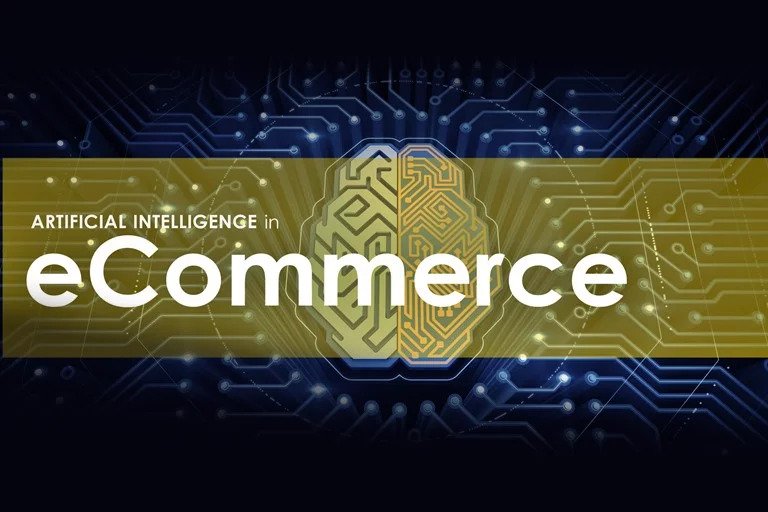MEANING OF AI IN E-COMMERCE
E-commerce (electronic commerce) is the purchasing and selling of products and services and transferring of payments or data over an electronic network, especially the internet. These transactions might be business-to-business (B2B), consumer-to-consumer (C2C), or consumer-to-business (C2B). Artificial intelligence is imitating human intellectual processes through computers, particularly computer systems. AI in E-Commerce provides customized product suggestions based on prior consumer behavior and lookalike customers. AI examines your purchase history on websites that propose things you might enjoy based on previous purchases.
IMPORTANCE OF AI CATEGORIES IN E-COMMERCE
AI is invading every part of our existence. AI is nearly ubiquitous, from the growing number of self-checkout cash registers to airport security checks. The number of firms developing AI has surged by 270% in the previous four years. Even yet, there are numerous misunderstandings concerning all aspects of artificial intelligence. For example, many people believe that artificial intelligence (AI) is a relatively new field of research, even though it has been around for about 70 years.
A company must have an eCommerce platform to compete with other retail enterprises. You will only maximize your earnings if your eCommerce firm can sell online. Following the epidemic, eCommerce firms have witnessed an increase. Technological innovation has brought us to an era in which we are more absorbed than ever in social media, devices, and the internet. Many successful firms have opted to embrace the internet market and look for ways to increase sales in this manner.
AI is becoming a significant component of the corporate sector, with many brick-and-mortar enterprises eager to enter the eCommerce market. It also increases interaction and engagement with digital touchpoints.
BENEFITS OF AI IN E-COMMERCE
There are several advantages of AI categories in eCommerce; some of them are as follows:
• Reduced operating expenses
One of the numerous benefits of artificial intelligence is that it allows for far more comprehensive and adaptable automation. As a consequence, firms may automate more processes while lowering operational expenses. Most common AI solutions today achieve this by replacing a capital-intensive and inefficient business operation, such as call center automation. Furthermore, even AI systems that do not cut expenses might accomplish so by simply being more cost-effective to operate than their traditional equivalent.
One example is using artificial intelligence to process customer data for marketing purposes. Non-AI tools or staff would take longer, be more expensive, and produce more mistakes.
• Virtual assistants and voice commerce
ECommerce virtual assistants (VAs) are chatbots that employ natural language processing and machine learning technology to comprehend client inquiries and provide an appropriate response. We’re all familiar with Google Assistant, Alexa from Amazon, and Siri from Apple. ECommerce companies encourage the usage of virtual assistants since they are available 24 hours a day, seven days a week, and can resolve inquiries quickly. Significantly, this enhances a company’s scalability.
Virtual assistants may help with everything from product research to listing and inventory management. Customers see VAs as rapid and straightforward access to information and support. Voice technology is also familiar. Since the 1960s, businesses have used it. Nonetheless, voice commerce has multiplied. It is a system that allows people to make purchases or search using their voices. Many people like voice shopping since it is faster and more convenient than typing because consumers do not have to input anything to search.
- Identify outstanding target prospects
New AI technology provides e-commerce enterprises the real-time intelligence they need to tackle business difficulties like lead generation. AI solutions for marketing, sales, and CRM systems are predictive marketing companies such as Mintigo. Getty Photos has produced significant new leads using Mintigo’s software by gathering data indicating which firms have websites showcasing images from Getty’s competitors.
- A new degree of customization
There are several AI solutions available now, one of which I would like to highlight is Boomtrain. This organization analyses several contact points to assist businesses in analyzing how clients engage online: via mobile apps, the web, email, and so on. In addition, an AI engine monitors all devices and channels to generate a unified consumer perspective. So it’s not just one channel, but all of them.
Of course, it aids e-commerce companies in providing a consistent consumer experience across all platforms. It will assist in the delivery of important messages at the appropriate moment.
- Chatbots that converse
Many well-known brands, like Starbucks, Sephora, and Domino’s, have used chatbots to improve their eCommerce operations. A consumer may ask a bot any question about a product and receive an immediate response. Chatbots may influence a customer’s choice to buy or not buy because they get speedy replies to their questions.

